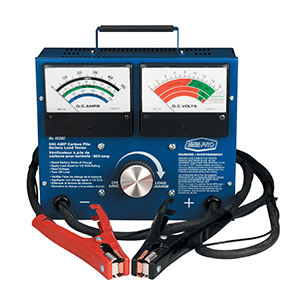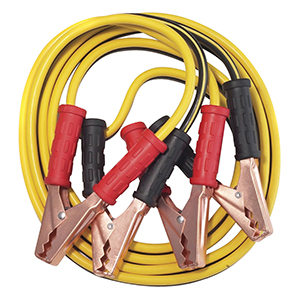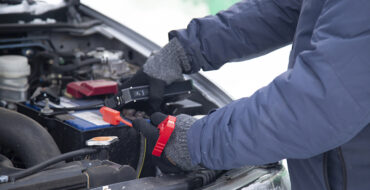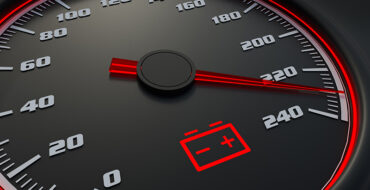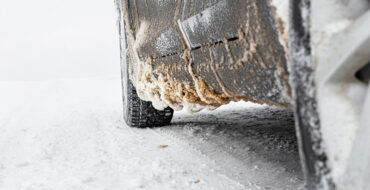Started your car, but it won’t start? You might have a dead battery. A sure way to tell is to turn on your headlights: if they’re dim, your battery has enough power to illuminate the lights but not enough to start the vehicle.
How to Choose the Right Jumper Cables
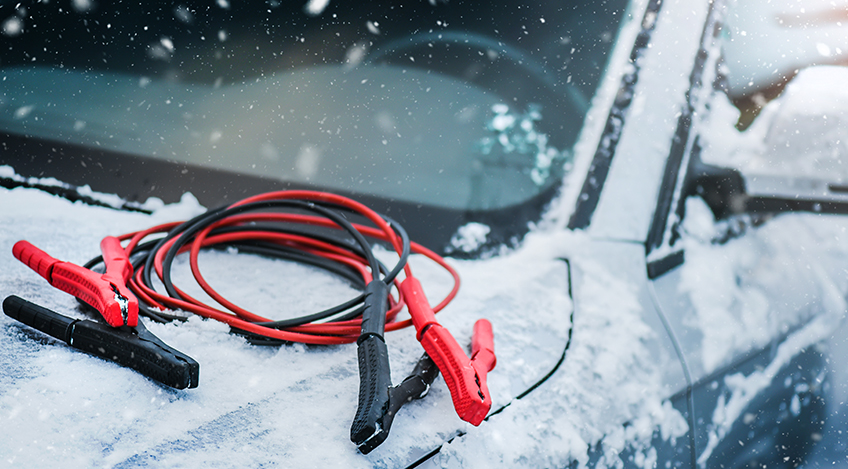
Using a battery tester will give you a definitive answer. To avoid finding yourself stuck with a vehicle that won’t start, keep jumper cables in the trunk as part of your winter driving preparation. Jumper cables may all look the same—two long cords, each with a clamp at either end—but they do vary with respect to a few key characteristics. So, how do you know what jumper cables to buy?
Wire gauge
The thickness of a jumper cable is called the gauge, and it can range between 1 and 12. The thicker the wire, the lower the gauge number. A 1-gauge is therefore a heavy-duty wire that will transfer more power faster. Thinner cables are cheaper, but you sacrifice power delivery with a higher gauge.
Cable insulation
The insulation serves to protect your hands from the current moving through the cables. It also prevents your car and the car giving yours a boost from being damaged.
Generally, the more expensive the cables, the better their insulation. For colder climates, you’ll want to purchase heavily insulated jumper cables because cables can become brittle as temperatures drop, creating the risk of wires snapping as you uncoil the cables from their pouch.
Length
Length is another important factor when deciding what jumper cables to purchase because you never know what position your vehicle will be in when the battery dies. Ten-foot cables are the best choice for two vehicles facing each other. However, if you’re parked facing a snowbank and the boosting car can’t roll up right beside you, you’ll wish you had something longer.
For the most part, anything shorter than 10 feet will only work if the vehicles’ bumpers are touching. So, when purchasing a set of jumper cables, longer is better. Ideally, you want cables that are 10–15 feet long. They should help in most situations.
Heavy-duty clamps
To connect the jumper cables to the batteries, you need jumper cable clamps, which are sometimes sold separately. The best clamps are made of copper or copper-plated, because copper is a great conductor of electricity. Fully copper clamps will ensure optimal conduction between cables and battery, but they’re usually more expensive. The copper-plated variety has an aluminum or steel core, which lowers the price but also the level of conduction. Additionally, the copper plating can eventually rub off, making it necessary to buy new clamps sooner.
You should also ensure that the rubber or vinyl grips on the clamps are thick. They’re intended to protect you from getting electrocuted, so it’s important to check for wear.
The right cables for the right needs
Finding the right set of jumper cables comes down to the four factors above. Buying the cheapest set may appeal to you, but you could end up with the shortest cables that conduct the least amount of electricity. If you’re trying to jump-start your car in minus-20-degree weather after it’s slid into a snow bank, that could be a problem.
Whether you shop online or visit one of our stores, our experts will be happy to answer any questions you have. We’ll help you find a pair of jumper cables and clamps that work with your budget and that will jump-start your car as quickly as possible.

